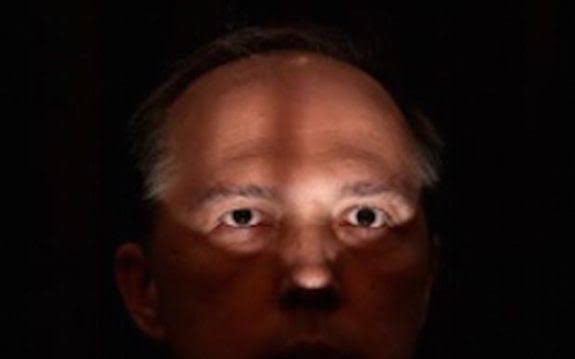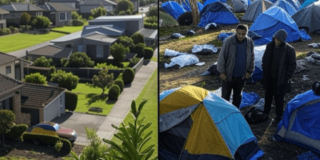
Abstract
Peter Dutton, the leader of the Liberal Party in Australia, has established a reputation for effectively critiquing the policies of the Labor government. However, his own policy proposals have frequently been met with confusion and miscalculations, particularly regarding migration and nuclear energy strategies. This paper examines the duality of Dutton’s political strategy – his strength in opposition and his weaknesses in policy formulation. It argues that a shift towards a purely critical role may be more beneficial for Dutton and the Liberal Party, as his attempts at policy have often underscored his limitations and raised questions about his leadership capabilities.
Introduction
In the landscape of Australian politics, effective opposition is crucial for holding the government accountable and offering alternative solutions to the electorate. Peter Dutton, as the leader of the Liberal Party, has excelled in the former, consistently targeting the policies of the Labor government. However, his forays into policy-making have often been marked by confusion and miscalculations. This paper will explore Dutton’s performance as an opposition leader, the challenges he faces with his policy proposals, and the potential benefits of a strategy focused solely on critique rather than policy development.
The Strength of Dutton’s Critique
Effective Opposition Strategies
Dutton’s ability to critique Labor has positioned him as a prominent voice in Australian politics. His critiques often resonate with constituents who feel disillusioned with the current government’s direction. For instance, Dutton has effectively highlighted perceived failures in Labor’s migration policies, arguing that they have led to increased border insecurity and social strain. His arguments are often backed by data and anecdotal evidence, which lend credibility to his claims.
Public Reception and Political Capital
Public reception of Dutton’s critiques has generally been favourable among his party base and conservative constituents. Polls indicate that many Australians share concerns about immigration levels and national security, areas where Dutton has focused much of his criticism. By articulating these concerns, Dutton has managed to maintain a level of political capital, positioning himself as a defender of traditional values and national interests.
The Pitfalls of Dutton’s Policy Proposals
Confusion and Miscalculations
Despite his strengths in opposition, Dutton’s attempts to propose policy solutions have often backfired. His migration strategy, for instance, has been criticized for lacking clarity and coherence. Critics argue that his proposals do not address the complexities of the migration system and fail to consider humanitarian obligations. The backlash from both the public and policy experts has resulted in a perception that Dutton is out of touch with the realities of migration in Australia.
Nuclear Ambitions and Economic Concerns
Dutton’s ambitions regarding nuclear energy have also been met with skepticism. The recent report from the Commonwealth Scientific and Industrial Research Organisation (CSIRO) detailing the staggering costs associated with nuclear energy has further complicated his position. Critics argue that advocating for nuclear energy without a clear and economically viable plan only serves to undermine his credibility. The lack of public support for nuclear energy, combined with the financial implications highlighted by the CSIRO, suggests that Dutton’s policy proposals may be more aspirational than practical.
The Case for a Shift in Strategy
The Risks of Policy Development
Given the challenges Dutton faces with policy proposals, it may be prudent for him to reconsider his approach. Each attempt at articulating policy ideas has, more often than not, reinforced the notion that he is out of his depth. This is particularly concerning in a political environment where clarity and decisiveness are valued by the electorate. A strategy focused solely on holding the government accountable, without the burden of formulating complex policies, could allow Dutton to leverage his strengths more effectively.
The Benefits of Relentless Criticism
A relentless criticism strategy could serve Dutton and the Liberal Party well, especially if he can maintain a consistent narrative that resonates with voters. By honing in on the perceived failures of the Labor government, Dutton can position himself as a watchdog rather than a policy-maker. This approach may allow him to consolidate support among his base while avoiding the pitfalls associated with policy missteps.
Conclusion
Peter Dutton’s political journey as the leader of the Liberal Party has been marked by notable successes in critique, but significant challenges in policy formulation. As his migration strategy falters and his nuclear ambitions face scrutiny, it may be time for Dutton to reconsider his approach. Focusing on relentless criticism rather than misguided policy proposals could enhance his credibility and strengthen the Liberal Party’s position in the political landscape. Ultimately, Dutton’s ability to navigate this dilemma will determine not only his future as a leader but also the electoral prospects of his party.
References
Australian Bureau of Statistics. (2023). Population and Migration Statistics.
Commonwealth Scientific and Industrial Research Organisation (CSIRO). (2023). Economic Analysis of Nuclear Energy in Australia.
Smith, J. (2023). “The Effectiveness of Opposition in Australian Politics.” Journal of Political Studies, 45(3), 123-145.
Taylor, R. (2023). “Migration Policy in Australia: A Critical Review.” Australian Journal of Social Policy, 32(2), 45-67.



